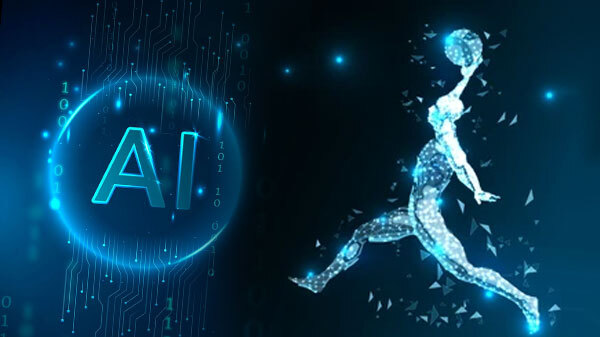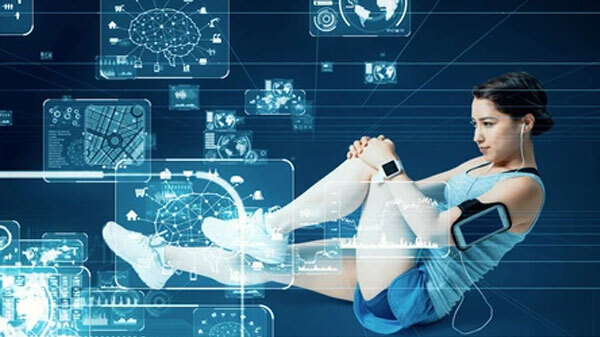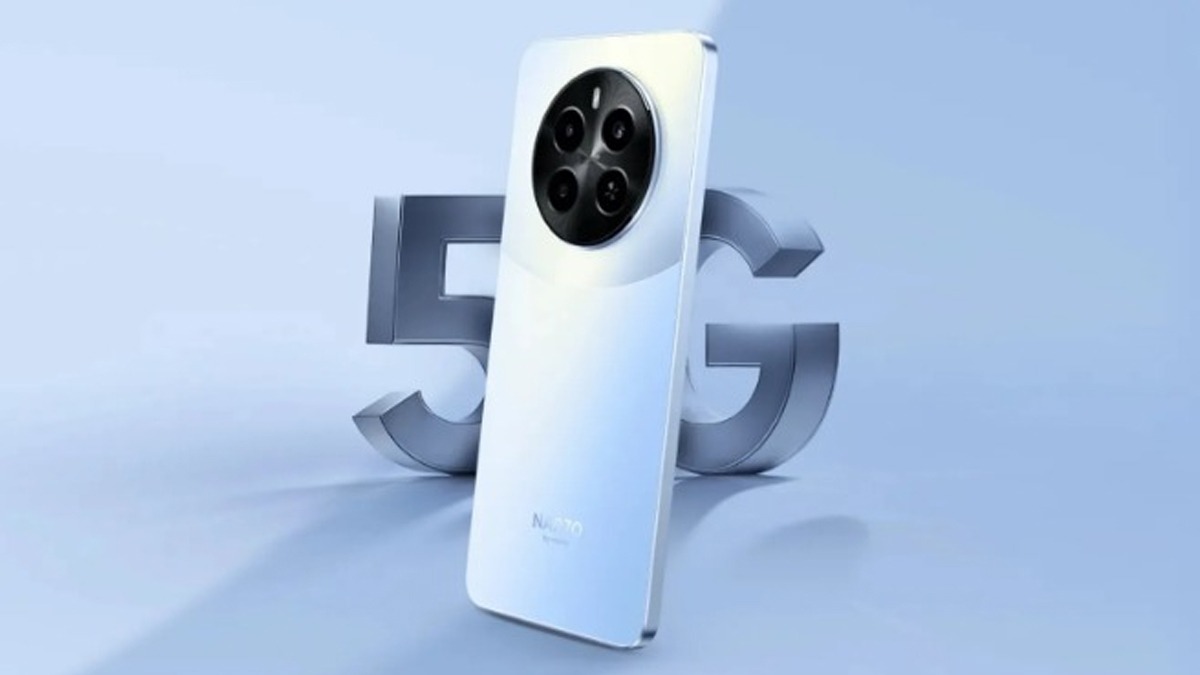Just In
- 9 hrs ago

- 11 hrs ago

- 11 hrs ago

- 12 hrs ago

Don't Miss
- Lifestyle
 Vikata Sankashti Chaturthi 2024: Lord Ganesha Mantras To Chant On This Auspicious Day
Vikata Sankashti Chaturthi 2024: Lord Ganesha Mantras To Chant On This Auspicious Day - Finance
 1:10 Split Coming Up: Crorepati FMCG ITC Turns Rs 1,50,000 To Rs 1.2 Crore; Makes Big Announcement; BUY?
1:10 Split Coming Up: Crorepati FMCG ITC Turns Rs 1,50,000 To Rs 1.2 Crore; Makes Big Announcement; BUY? - Sports
 Pakistan vs New Zealand Playing 11: PAK vs NZ 4th T20I Team News, Predicted Lineup And Other Details
Pakistan vs New Zealand Playing 11: PAK vs NZ 4th T20I Team News, Predicted Lineup And Other Details - Education
 JEE Main Result 2024 Out, Telangana's 15 Toppers Shine, Check Statewise List of 56 Candidates with Perfect 100
JEE Main Result 2024 Out, Telangana's 15 Toppers Shine, Check Statewise List of 56 Candidates with Perfect 100 - News
 Mangalsutra Row: Did Indira Gandhi Donate Gold During The 1962 War? The Facts Behind Priyanka's Claim
Mangalsutra Row: Did Indira Gandhi Donate Gold During The 1962 War? The Facts Behind Priyanka's Claim - Movies
 Kota Factory 3 OTT Release Date, Platform: When Will Jitendra Kumar's Web Series Premiere On Netflix?
Kota Factory 3 OTT Release Date, Platform: When Will Jitendra Kumar's Web Series Premiere On Netflix? - Travel
 Escape to Kalimpong, Gangtok, and Darjeeling with IRCTC's Tour Package; Check Itinerary
Escape to Kalimpong, Gangtok, and Darjeeling with IRCTC's Tour Package; Check Itinerary - Automobiles
 Aston Martin Vantage Launched In India At Rs 3.99 Crore
Aston Martin Vantage Launched In India At Rs 3.99 Crore
Artificial Intelligence Is Changing The Face Of Tech In Sports
Automation and AI are at the forefront of driving numerous industries in the pandemic-hit world. While things are slowly getting back to normalcy, they would never be the same. As a matter of fact, the pandemic unleashed the true potential of Artificial Intelligence, paving the way for a more technologically advanced society.

The Tokyo Olympics recently concluded after being delayed for over a year due to coronavirus concerns. However, with the new schedule came the increased use of artificial intelligence to the table. The use of smart tech has completely altered the way AI was used in sports and fitness. Since the sports industry requires number crunching, it makes for an ideal setting for artificial intelligence. Let's see how AI is changing the sports industry for good.

How Is AI Used In Sports
While many things in the world are unpredictable, for things that can be predicted using data, there's AI. And, the world of sports is one such quantifiable thing. The use of AI in sports has become common in recent years. And, thanks to the positive impact it has left on the fitness industry, it will only continue to stretch its arms in the realm of sports.
As per PwC research, AI-based tools are already being used in almost all major sports disciplines such as cricket, baseball, soccer, and American football alongside non-professional leisure activities such as grassroots sports. These tools include sensors, wearables, and computer vision-powered cameras that gather data on athletes' performance.
Besides, natural language processing devices can make use of speech and text recognition to gain insights into the audience's sentiments. All this data can be crunched leveraging machine learning (ML) and deep learning (DL) systems to create forecast models and enable coaches to make better decisions. Let's get into the details.

Recruiting New Team Members
Evaluating an athlete using quantitative metrics might not tell you a lot about them, but their performances can be subject to such scrutiny. Sports organizations are using this data as a measure of fitness and the potential of the athlete. However, the data used for recruiting doesn't mean using widely known stats of the person but using more complex metrics that consider other aspects as well.
The process of gathering data has become even more easy and reliable ever since big data and AI have taken over sports management. AI can use historical data to predict the future performance of players before recruiting them. The same process goes into predicting the market values of players before making a contract offer to new talent.

Keeping Athletes Fully Fit
The analytical and predictive capabilities of AI go beyond just recruiting new players. They also find application in medical diagnostics, which is very imperative for players' performance. AI-backed tools can check for several physical parameters such as athletes' movements to determine the condition and spot injuries before the players even realize it.
Gathering information with sensors is necessary for data analytics in healthcare, and as per the latest trends, health wearables are the best products for that due to their portability and cheap price tags.
Their ability to track biometrics makes them more popular not just among professional athletes but also for fitness enthusiasts. As per MarketsandMarkets research, wearables are the biggest and fastest-growing share in the sports device market.

Broadcasting And Streaming Of Sports
Besides making things easier for players and managers, AI is also capable of revolutionizing live broadcasting and impact the way viewers experience sports. Artificial Intelligence can also alter the way broadcasters make money from sporting events.
Moreover, AI systems can come in handy to automatically choose a suitable camera angle to provide the best viewing experience possible. It can smartly provide subtitles for live sporting events in viewers' preferred languages based on their whereabouts.
AI systems can also identify the best opportunities to push advertisements based on the reaction and excitement levels of the crowd. This will enable broadcasters to effectively make money through ad sales.

Are There Any Downsides?
As they say "applause doesn't come without caveats," the use of AI systems could have some downsides. Data trading can be used for betting purposes as there is an immense amount of financial benefits involved. NCAA signed a 10-year contract with a UK IT company to collect and sell sports data to media corporations.
Another challenge could be keeping human talent intact since AI could take over sports such as car racing where results are most influenced by non-human elements. For instance, to win an F1 race, almost everything is data-driven, including the time taken during a pit stop.
Using data collected by onboard sensors is so important that Formula One teams use Amazon-powered cloud-computing services. This information can be stored and fed to AI to come up with the best strategies to succeed. Considering the pace at which AI is stretching its reach in sports, this trend can spread to all other sports, causing a clash between human talents and AI systems.
But we mustn't forget one thing that despite using AI to make predictions, we cannot rule out unpredictability and surprise from sports by virtue of the human element. After all, that's what makes sports exciting for viewers across the globe.
-
99,999
-
1,29,999
-
69,999
-
41,999
-
64,999
-
99,999
-
29,999
-
63,999
-
39,999
-
1,56,900
-
79,900
-
1,39,900
-
1,29,900
-
65,900
-
1,56,900
-
1,30,990
-
76,990
-
16,499
-
30,700
-
12,999
-
11,999
-
16,026
-
14,248
-
14,466
-
26,634
-
18,800
-
62,425
-
1,15,909
-
93,635
-
75,804












































